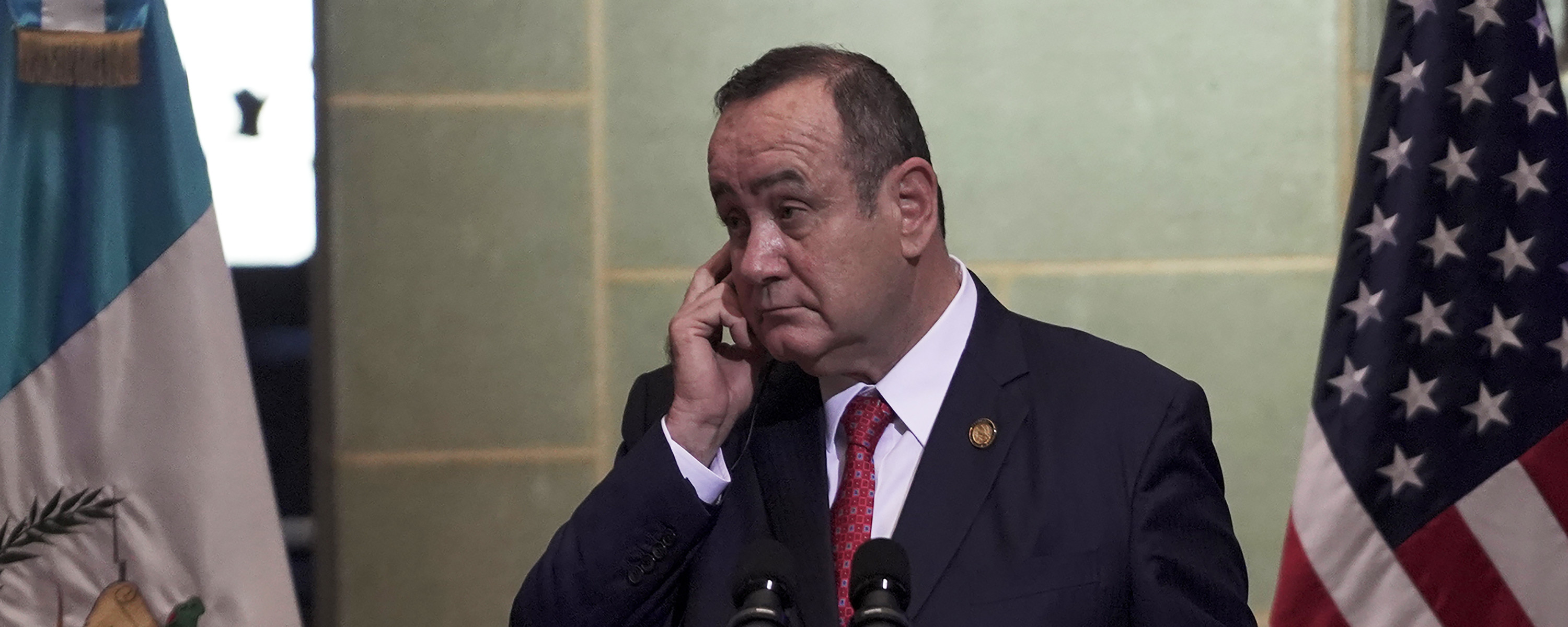Guatemalan President Alejandro Giammattei is running out of time to avert a catastrophe. Prosecutors' brazen efforts to thwart the swearing-in of President-Elect Bernardo Arévalo in January have unleashed a crisis that is dangerously inching toward a scenario of social confrontation and grave international isolation.
The resignation of the Minister of Governance, who indicated that he had refused to carry out illegal orders that threaten Guatemalan lives, coupled with violent clashes in San Marcos that have already left one person dead, have further rarefied the tension enveloping the country.
After two weeks of protests in which thousands of people have demanded the resignation of Attorney General Consuelo Porras and her right-hand man, prosecutor Rafael Curruchiche, President Giammattei has opted for paralysis, arguing that he does not have the power to resolve the crisis.
An attorney general with a sense of responsibility to her country, and with dignity, would have already resigned. An act as simple as that —her resignation, followed by that of Curruchiche— would clear a path to normalization of national life and a democratic transfer of power. This is what Guatemala needs. But their efforts to delegitimize the electoral process have confirmed to anyone who still harbored doubts that Porras and her right hand man lack those two things: responsibility and dignity.
The options left to emerge from this crisis are increasingly few and far between. Neither the president nor Congress have the power to remove the country’s top prosecutors. Legally speaking, the only routes to force their exit now pass through the Supreme Court of Justice and the Constitutional Court. But neither of these venues appear to have the political will to take action against Porras; and even if they did, it would be a drawn-out process of either removal for non-compliance with a judicial order, impeachment, or the declaration of unconstitutionality of the legal reform that curbed the president’s power to remove the attorney general. The path forward, therefore, lies in the political arena.
With just three months left in his term, Giammattei holds the decision to lead this solution, demanding the resignation of the lead prosecutors and respect for the election results. But his political allies, big businessmen, and other insiders are pressuring him to nullify the election and bar the president-elect from donning the presidential sash in January. They do so because they do not want to lose control of the judicial system, and their privileges and impunity along with it.
Giammattei has presided over a government tarnished by corruption scandals and has personally marshalled the dismantling of the judicial branch that cost Guatemalans so many years, so many resources, so much trauma, so much public exhaustion, and so many struggles against the powerful to put in order and offer guarantees of justice.
But if his poor exercise of power already augured an ill-fated spot for him in the country’s history, the decision he makes now will mark his government more than any other.
The Honduran experience following the 2009 coup d’état serves as a warning of the consequences of breaking the democratic order. The ensuing international isolation provoked a full-fledged economic crisis as the country was barred from receiving international credit and saw its exports curtailed. This allowed illicit business to thrive to the point that Honduras became a narco-state. Today Guatemala runs the same risk, and its businessmen could become international pariahs.
Compounding matters, the likely increase in citizen protest will inevitably lead either to the fall of those who today are in power or to mass repression. In any event, the crisis will grow.
Giammattei is president and therefore chiefly responsible for the current political crisis. His decisions in the coming days will determine the future of Guatemala, and therefore his place in the country’s history. He is running out of time.

